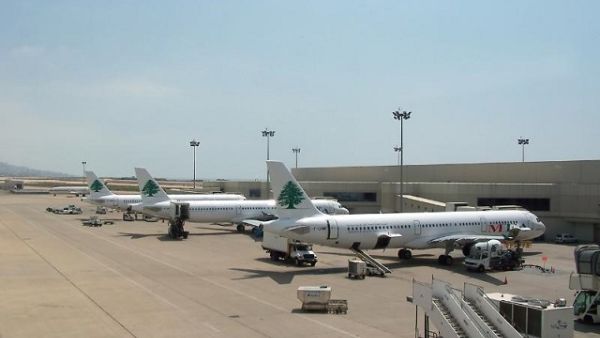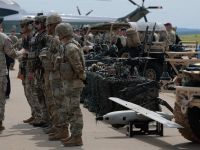General Security chief Maj. Gen. Abbas Ibrahim downplayed concerns over security at the Rafik Hariri International Airport Thursday but admitted work was needed, adding that new measures at the facility would be unveiled in the upcoming weeks. “The situation at the airport isn’t so scary as to cause the panic that it did,” Ibrahim said, speaking to MTV on the sidelines of an official visit to London alongside Interior Minister Nouhad Machnouk. “But as I said, any vital facility ... constantly needs to be developing their protective measures.”
Regarding the construction of a new fence around the airport, Ibrahim said that a company has been awarded the contract to build it but that there were delays in implementing the project.
“There isn’t anything stuck,” he said when asked what the issues in closing these security gaps were. “There is something that requires more effort. I think in the upcoming weeks we will see developments in the airport’s security.”
The general situation in the country is under control, he added, explaining that there had been significant achievements made. He called on the Lebanese people to rally around security institutions.
Ibrahim’s remarks came after Machnouk brought up the airport’s security situation Tuesday, vowing to close security gaps.
The discussion came just hours after at least 31 people were killed in attacks on the Brussels airport and a metro station in the Belgian capital that were later claimed by Daesh (ISIS).
Machnouk drew criticism in January for remarks that British Airways and Air France were contemplating suspending flights to Beirut over lax security measures at the airport.
At the time, he said the airport suffered from “serious problems” that could no longer be overlooked.
However, Public Works and Transportation Minister Ghazi Zeaiter dismissed the comments at the time, and while admitting there was a need for new equipment said that the airport had boosted safety and security measures.
Progressive Socialist Party Leader MP Walid Jumblatt cast doubt on the ministers’ assurances Thursday.
“In London, a minister revealed that there are certain security holes at Beirut airport and that they are being fixed. How can we believe that when we see chaos and negligence everywhere?” Jumblatt posited over a number of messages on Twitter.
Jumblatt appeared to undermine Machnouk’s promise that prioritized the need to address the security gaps, voicing doubts that “a security and military official would care about the safety of citizens.”
In a speech Wednesday, Machnouk talked about different challenges facing Lebanon, including terrorism. The minister, however, said that the country has, to a certain extent, succeeded in shielding itself from the Syrian crisis
“As for Lebanon, despite the proximity to the Syrian conflict, despite the economic challenges and despite the presence of more than 1.2 million Syrian refugees, the country has surprisingly managed to minimize the security and military spillovers from Syria,” he said.
This, the minister said, was because of a number of things, including national unity and the presence of Muslim moderates.
“The relative stability that Lebanon enjoys today and the lack of communal support for terrorist groups are direct results of this strategy,” Machnouk said.
Citing data released by Pew Research Center, “99 percent of Lebanese have a very negative opinion about ISIS. Sunni support for ISIS is just as low as in other Lebanese communities.”
The minister said that the number of Lebanese nationals fighting with the group in Syria and Iraq, at around 400 nationals, is relatively low compared to countries farther away.
“Lebanon is one of very few countries in the region that has succeeded in conducting many pre-emptive operations against terrorist sleeper cells,” he said. “There is no secret to our success. It is straightforward: The democratically elected moderate Muslims in Lebanon are at the front lines fighting extremism.”
By Ghina Obeid








